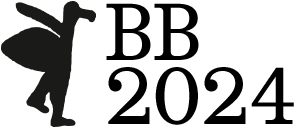Every day we pack our children’s schoolbags with notebooks, books, pens, water and snacks, exercise books, a mobile phone, a few small items … things we consider essential so that we are content and happy that our children have all they need. For every day. Common items, essential as well as important. Later, as the children are older, they pack their school bags by themselves, as we have taught them. According to what we adults prepared for them and put in their bags. And for the years to come, indeed their entire lives, they shall be carrying this given load and live with what was packed for their journey. Shouldn’t we also add in their bag a ticket to the theatre? Museum? Galleries? Season tickets to the philharmonic? Shouldn’t they be given a chance to see with eyes shut? To read in between lines? Shouldn’t we add in their bag a question opener? Joy of play? Desire to experiment? Courage to think, to change … to know and to understand?
Learning through theatre is the Festival leitmotif. We believe that theatre, art and creativity are necessities for everyday life.
Because:
Theatre and school are a public service across generations.
Art, theatre and school are an essential part of European civilisation and democracy.
Theatre and school are not merely buildings, goods and institutions. They are primarily people who teach and who learn, people who create and who are created. A person spends the most important years of his life at school. Theatre/art accompanies us throughout our lives.
Both activities are associated with play, and play is the foundation of creativity. Both deal with the sensory, emotional and rational aspects of a people big and small, and influence our life.
Cultural literacy determines what we set as our priorities. If we find ethical and aesthetic values, innovation, creative thinking in every walk of life to be pivotal, we have to link learning to art, art education and professional cultural institutions.
Cultural literacy is a prerequisite for a decent present and future.
Based on their cultural competence, people develop habits, and choose how to spend free time accordingly. Cultural competence depends on learning, as well as formal and informal contact with art and works of art. (P. Bourdieu).
The 23rd edition of the international festival Bábkarská Bystrica wishes to open a discussion about the use of the potential of theatre and art in learning (in the curricula) based on good practice elsewhere in Europe, and to highlight the unexploited capacity of cooperation of cultural/theatre institutions with schools and the public across generations. It also hopes to accentuate the importance of art, learning and cultural literacy in solving existential situations, social crises, wars of any kind, informational, conventional, hybrid, cultural challenges…
